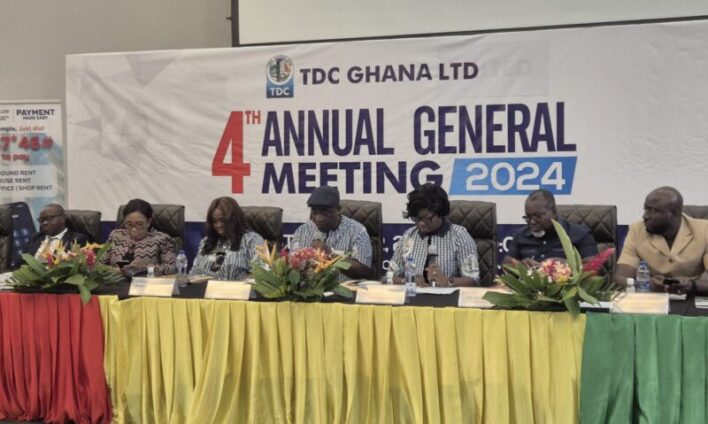
Audio By Carbonatix
John Boadu, the Director-General of the State Interest and Governance Authority (SIGA), has disclosed that the government is preparing to divest its interest in most state-owned enterprises (SOEs).
Mr. Boadu stated that this would allow Ghanaians to also invest in such institutions by buying shares.
He revealed this at the fourth annual general meeting of the TDC Ghana Limited, saying, “The government is preparing itself to diversify its interest in most SOEs, 100 percent ownership for what, and the people of this country are also ready to invest in these entities.”
He noted that a look at most countries that have developed showed that governments have limited shares in their SOE sectors, adding that this ensures that people who are capable are put on the board.
He added: “You are not limited to costs that must be paid by the government, and you must pay those costs that ensure that you are not able to make the required profits.
Touching on the operations of TDC, Mr. Boadu commended the company for its performance over the past years, adding that it is about time that state limited liability entities challenge the market in which they operate.
The SIGA Director-General reminded TDC of its ability to borrow at the backbone of the government, provided its financials are good.
Commenting on the provision of affordable houses to Ghanaians, he said for the TDC to provide such houses and still survive, “the government must take the difference so they can survive; that’s how it works elsewhere.”
Meanwhile, Kofi Brako, the Board Chairman of the TDC, has appealed to the government to involve TDC in more affordable housing projects to help address the challenges in the sector and promote growth.
He said the real estate sector in Ghana continues to stand out as one of the fastest-growing industries, showing consistent expansion over the years, revealing that the industry over the years has experienced growth ranging between eight and 10 per cent.
This, he noted, was fuelled by the country’s rise in population and urbanisation trends, adding that, despite the promising development in the sector, Ghana grapples with a significant housing deficit, with Ghana currently having an estimated deficit of 1.8 million units of houses.
Latest Stories
-
National Security Strategy gathering dust while Ghanaians die in Burkina Faso — Kwesi Aning
3 minutes -
Not one warning issued-Prof. Aning slams gov’t over failure to warn tomato traders of Burkina Faso danger
36 minutes -
Today’s Front pages : Tuesday, February 17, 2026
46 minutes -
Ghana, Spain deepen agribusiness ties as GB Foods calls on Trade Minister, unveils 6k-acre tomato project
47 minutes -
Our Alhaji of Radio Univers is gone
55 minutes -
Eve and Twinsdntbeg to headline 10th anniversary of the Warwick Africa Summit 2026
56 minutes -
Continental Free Trade Area must benefit farmers – AfCFTA Secretary-General Wamkele Mene
1 hour -
MTN Ghana and CalBank launch 2026 “Save A Life” campaign
2 hours -
24 Hour Economy Secretariat engages Bank of Ghana on policy alignment
2 hours -
The fugu fight: A lesson in identity, a reminder of our power in unity
2 hours -
Minority Whips are the backbone of my leadership – Afenyo-Markin
2 hours -
Mahama to present historic resolution on slave trade to UN in March
2 hours -
Tanker blast: NRSA presses for safety reforms
3 hours -
Ghana, Lebanon deepen security cooperation after high-level talks in Accra
3 hours -
Mahama gov’t has made no real impact after one year in office – Afenyo-Markin
3 hours

